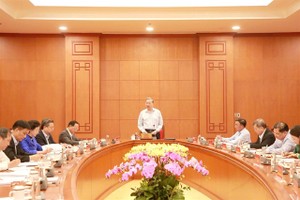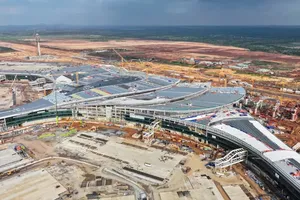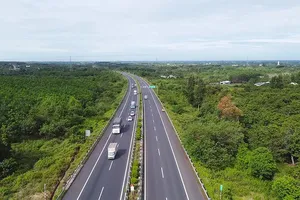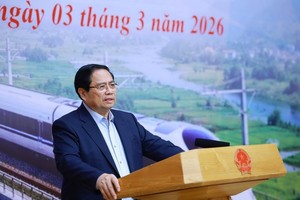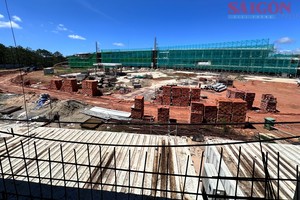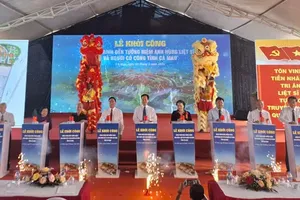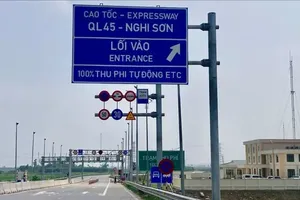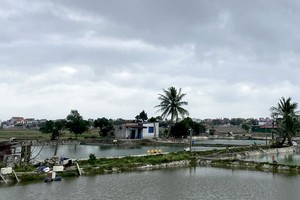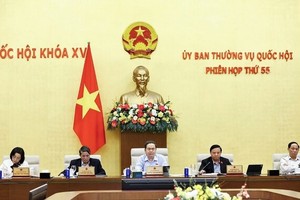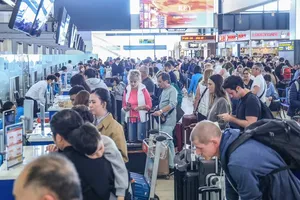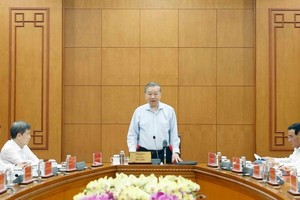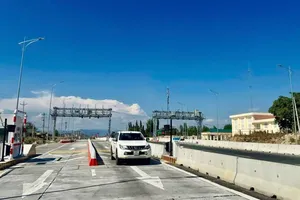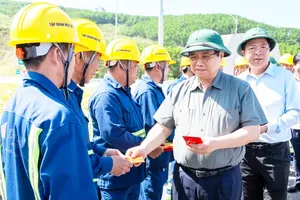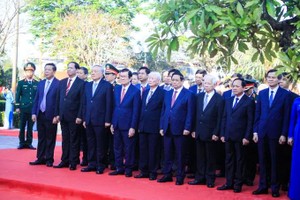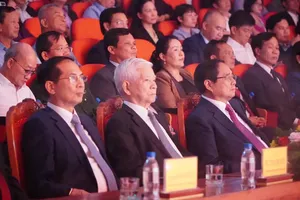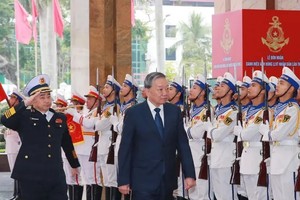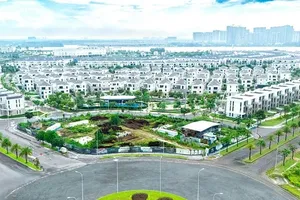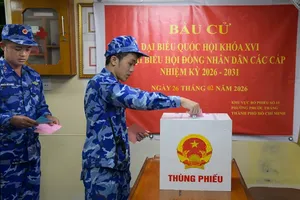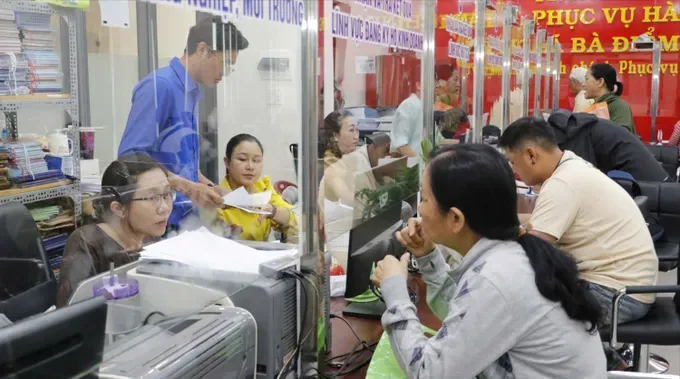
Pushing decentralization, delegation
Ba Diem is one of HCMC’s most populous communes, with over 204,000 residents. On average, its Public Administration Service Center handles 350 applications a day, the vast majority being simple copy certifications. In the beginning, this created a major bottleneck. The commune had to station a Vice Chairman of the People’s Committee at the counter just to sign off on files for residents. This, of course, significantly impacted the leadership’s ability to manage their main socio-economic duties.
This was, it’s reported, a common headache for wards and communes across HCMC in the early days of the new model. Chairman Nguyen Duc Thinh of Thai My Commune People's Committee said his office handles 150-300 files daily. Previously, his staff had to present every single one for a leadership signature. If a leader was in a meeting or on an urgent task, the public simply had to wait.
To fix gridlock, an August 2025 HCMC resolution let commune chairmen delegate signature authority for copy certifications. In Thai My Commune, delegated staff now sign, and return them on the spot. This slashes processing times, frees up commune leaders for macro-level management, and boosts the proactivity and responsibility of staff.
According to Tran Sy Thanh (in his former role as Hanoi People's Committee Chairman), Hanoi’s 2-level model is running stably, but the workload is enormous, demanding a constant review and culling of red tape and a reorganization of service processes. The consistent stance of Hanoi’s leadership is flexible, substantive decentralization that is appropriate to each unit’s capacity.
The city isn’t just delegating power; it’s ensuring the organizational model, the people, and the resources are in place so the grassroots can actually handle the job. At the same time, Hanoi will train its staff to be more professional, aggressively apply digitization, and encourage departments to build “Digital Operations Handbooks” and use AI to process files.
Thanh Hoa Province’s National Assembly Delegate Mai Van Hai commented that the 2-tier model runs, but inadequacies persist, namely a “surplus/shortage” of staff in remote areas and poor policies. He urged the Government to comprehensively assess decentralization, clearly define job positions, create better salary policies, and filter out and replace those who fail.
Nguyen Chi Doan, Deputy Director of the Hanoi Department of Home Affairs informed that decentralization must fit local specifics. In Hanoi and HCMC, commune workloads are massive, so a “one-size-fits-all” staff allocation fails. 95 percent of staff are still new. Hanoi is, therefore, building a “flexible staffing quota.” Meanwhile, the Ministry of Home Affairs is proposing increasing commune offices from 3 to 5 for complex localities.
Proactivity from grassroots level
Looking back at the early, unavoidable confusion, especially with complex land and construction files, Deputy Director Nguyen Minh Hoang of the Thuong Tan Commune Public Administration Service Center (HCMC) said his leaders didn’t wait. They boldly sent staff from the processing department directly to the Land Registry Office (Branch 28) to “learn the ropes” and get help. In early October, the commune also hired an IT contractor to fill a gap while waiting for the official position to be approved.
Di An Ward, with over 234,000 people, is HCMC’s most populous. Its service center handles 400 applications a day, mostly in justice, construction, land, and business. The Center’s Deputy Director Ngo Gia Dai reports they’ve even launched a “Mobile Public Administration” model. This is an innovation on the one-stop-shop mechanism, aiming to best serve and proactively solve difficulties for residents and businesses trying to use online public services.
In Hanoi, the first three months of the new model have reportedly shown real effectiveness in reducing intermediary steps and speeding up processing. Despite difficulties with human resources and infrastructure, Hanoi’s strong reform determination, combining with synchronized solutions in decentralization, digital transformation, and staff training, is gradually affirming that the 2-tier model truly is “lean, modern, effective, and efficient.”
But challenges remain. Minh Chau is Hanoi’s only ‘island’ commune. Its Party Secretary Nguyen Duc Tien said they still lack high-specialty staff, especially in accounting and other specific job roles.
Meanwhile, Vu Dang Dinh, Secretary of the Party Committee of Hoan Kiem Ward (the capital’s central ward) shared that the commune level is now the mainstay for building administrative governance. Therefore, alongside shifting the mindset from administrative management to enabling governance, ensuring resources and policies is critical. He expressed a strong desire for faster progress in resolving bottlenecks related to decentralization, legal issues, and the “lines of responsibility” between the city and the communes.
Localities must proactively solve their own problems
In a recent National Assembly socio-economic discussion, Deputy Prime Minister Pham Thi Thanh Tra emphasized that the essence of the 2-tier loca government model is to shift from administrative management to enabling governance, serving the people; from passive to proactive. “Early difficulties are ‘inevitable,’” she noted, “but we can’t be impatient, nor can we go too slow.”
The innovation process, she said, must proceed with a “do, adjust, and perfect mindset” on all fronts, from the apparatus and human resources to its mechanisms and management technology. The Government requires localities to proactively solve difficulties within their own authority, avoiding a wait-and-see, dependent mentality. They must also, she stressed, be more decisive in handling public assets, cutting and simplifying processes to serve the people better.
